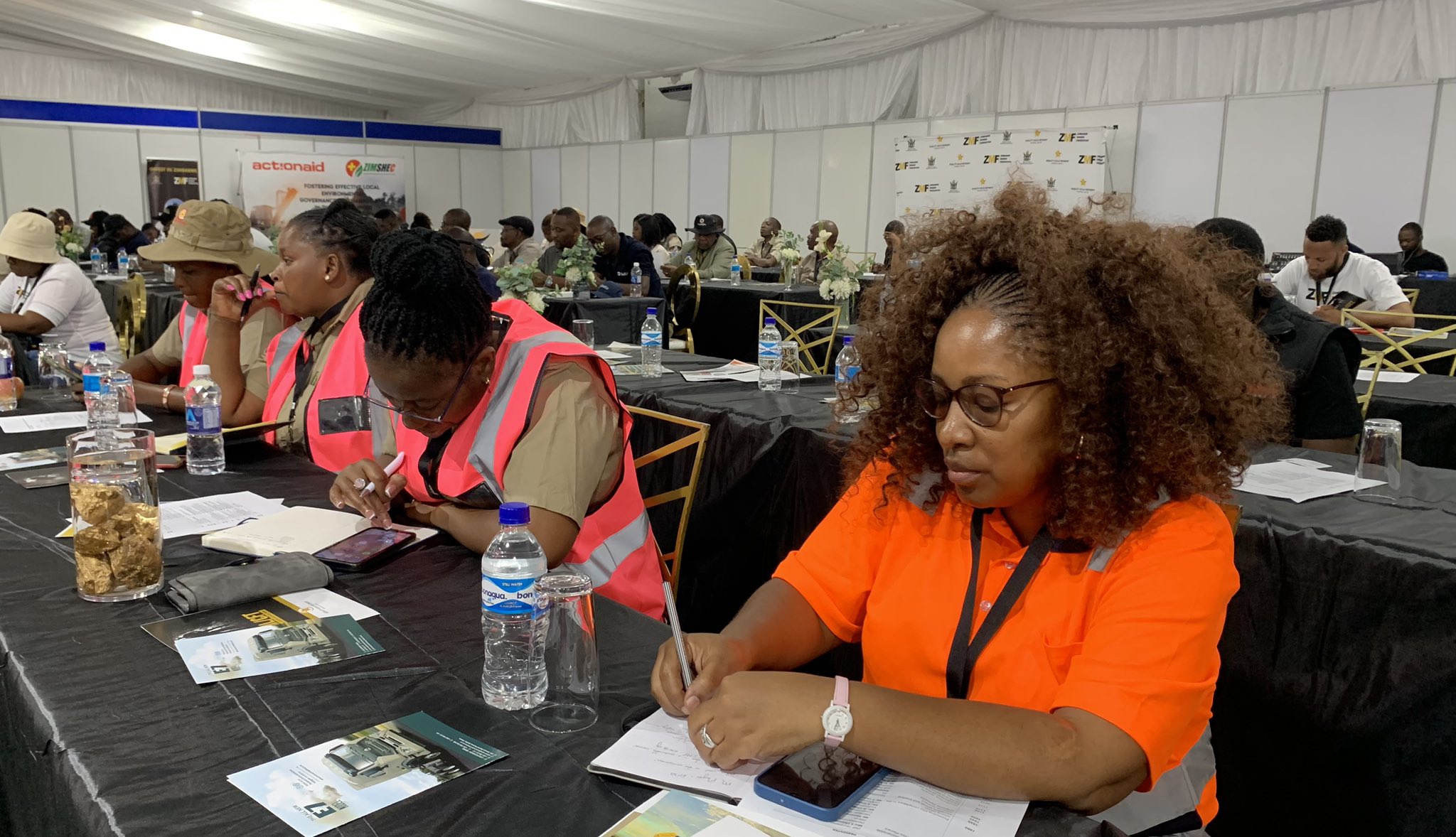The Zimbabwe Association of Women in Mining (ZAWIMA) has called for urgent action to address the significant health and safety challenges faced by women in the mining sector, Mining Zimbabwe can report.
By Rudairo Mapuranga
Speaking to this publication on the sidelines of the Mining, Engineering, and Transport Expo (Mine Entra) in Bulawayo last week, ZAWIMA Chairperson Kundai Chikonzo highlighted the need for policy reforms and improved working conditions for women miners.
“Our recent congress revealed several critical issues that must be addressed to ensure the well-being of women in mining,” Chikonzo said. “These include inadequate personal protective equipment (PPE), lack of appropriate sanitation facilities, and concerns about reproductive health.”
According to Chikonzo, ZAWIMA’s survey found that many women miners are not provided with PPE suitable for their specific needs, putting them at risk of injury. Additionally, she said the lack of adequate sanitation facilities at mining sites can lead to health problems, particularly for women.
“We are also concerned about the potential impact of mining chemicals on women’s reproductive health,” Chikonzo added. “More research is needed to assess these risks and implement preventive measures.”
ZAWIMA has called for the government to review and amend the Mineral and Mines Bill to ensure that it adequately addresses the specific needs of women in mining. The organization has also urged mining companies to prioritize the health and safety of their female employees.
“We believe that by working together, we can create a safer and more inclusive mining sector for women,” Chikonzo said. “ZAWIMA is committed to advocating for the rights of women in mining and ensuring that their voices are heard.”
Challenges Faced by Women in Mining
Women in mining face a unique set of challenges that significantly impact their health and safety. These challenges include:
- Lack of access to appropriate PPE: Many women miners are not provided with PPE suitable for their specific needs, putting them at risk of injury.
- Inadequate sanitation facilities: The lack of adequate sanitation facilities at mining sites can lead to health problems, particularly for women.
- Reproductive health concerns: Mining chemicals may negatively impact women’s reproductive health.
- Gender-based violence: Women in mining are at risk of gender-based violence, which can have devastating effects on their physical and emotional well-being.
- Discrimination and harassment: Women in mining often face discrimination and harassment, making it difficult for them to perform their jobs and feel safe in the workplace.
The Importance of Addressing These Challenges
Addressing these challenges is essential to ensuring the well-being of women in mining and promoting gender equality and diversity in the sector.
ZAWIMA’s Recommendations
ZAWIMA has made several recommendations to address the challenges faced by women in mining:
- Review and amend the Mineral and Mines Bill: The government should review and amend the Mineral and Mines Bill to ensure it adequately addresses the specific needs of women in mining.
- Prioritize the health and safety of women miners: Mining companies should prioritize the health and safety of their female employees.
- Provide appropriate PPE: Mining companies should provide women miners with PPE that is suitable for their specific needs.
- Improve sanitation facilities: Mining companies should improve sanitation facilities on their sites to ensure they meet the needs of women.
- Conduct research on reproductive health: More research is needed to assess the impact of mining chemicals on women’s reproductive health.
- Implement measures to prevent gender-based violence: Mining companies should implement measures to prevent gender-based violence in the workplace.
- Promote gender equality and diversity: Mining companies should promote gender equality and diversity in the workplace.
ZAWIMA’s call for action is timely and important. By addressing the challenges faced by women in mining, we can create a safer and more inclusive mining sector for all.




